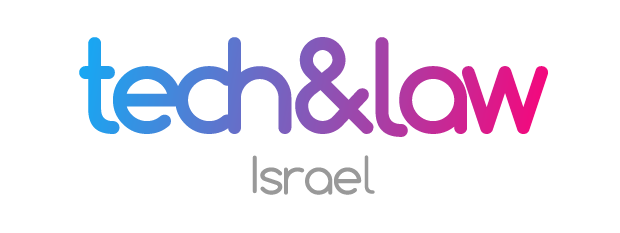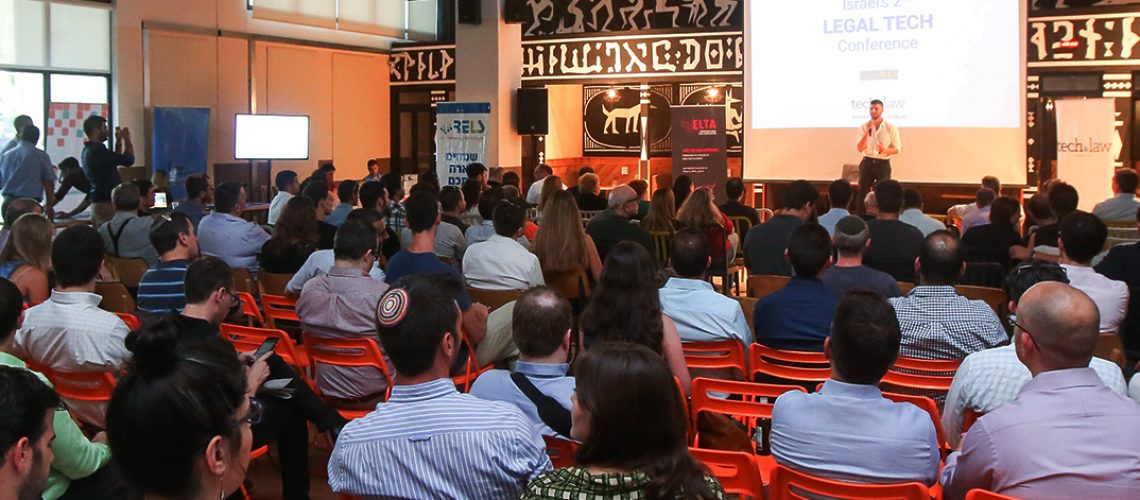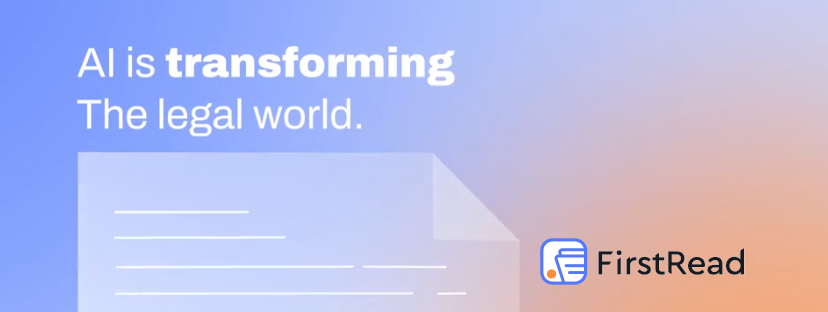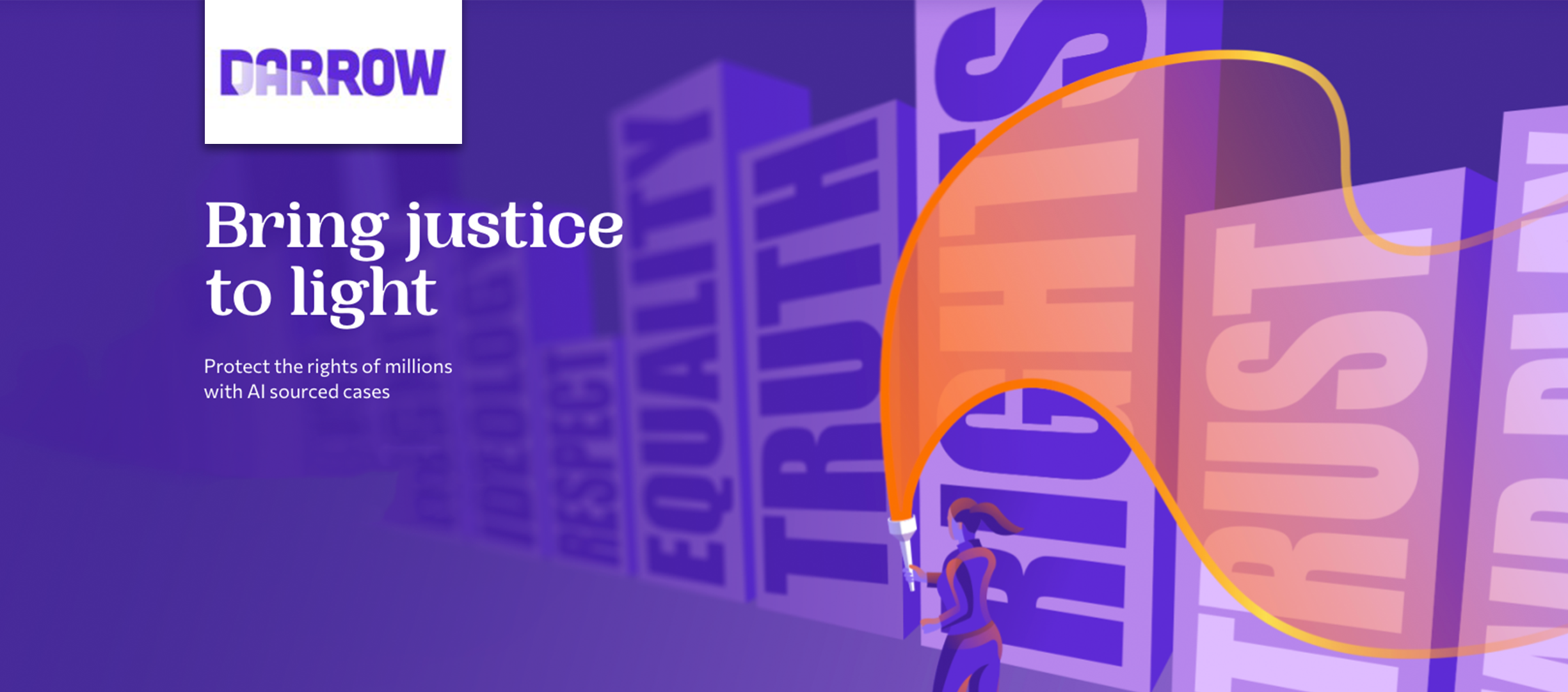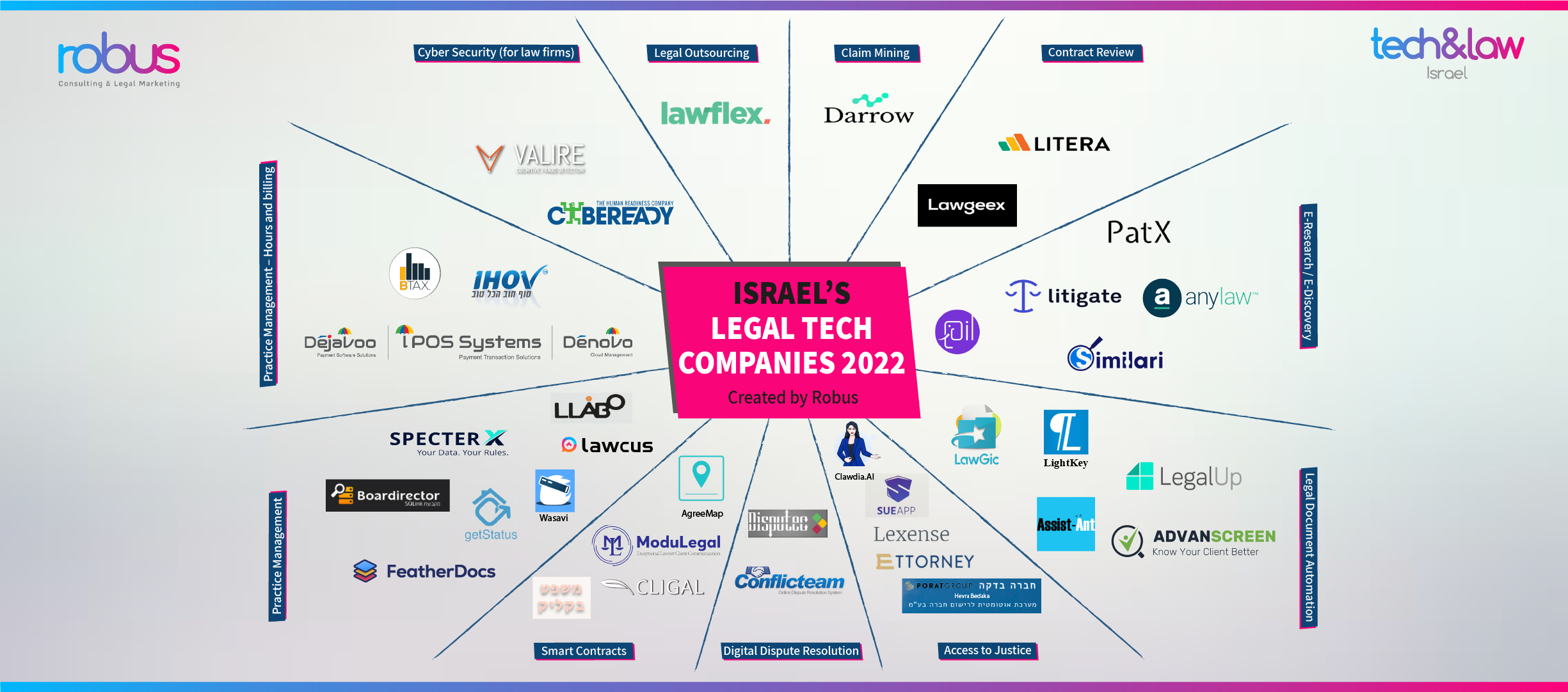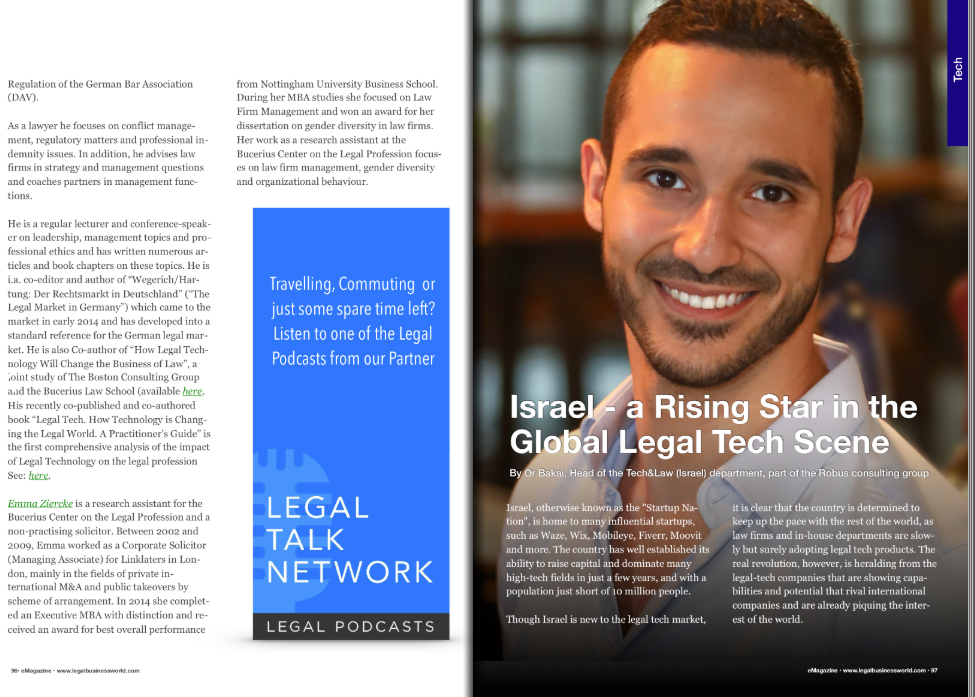Ever since the Legaltech conference we hosted last week came to an end, we’ve been getting more and more requests to share a summary of what went down in Israel’s biggest legal tech event yet. So, for those of you who were not among our 300+ guests, the following is a summary of our latest Legaltech conference.
Industry Exhibition
Between glasses of cold beer and bite sized sandwiches, visitors were greeted at the gates of the magnificent complex, 16 companies and startups in the field of Legaltech operating in Israel and abroad, who presented their activities to the conference participants.
The conference guests received the first glimpse of its kind into the mix of companies operating in this virgin market. Among the companies were startup companies in their early stages and well-established technology companies. Explanations were given, business cards were exchanged and new friendships were formed…that is how a new community is built. For those of you who missed the event or arrived a little late, all the details about the participating companies can be found here.
“Our main goal is to create a community”
The first on stage was Attorney Zohar Fisher, the founder of Robus, and the man who brought Legaltech to the Israeli market. After congratulating the conference participants, he emphasized that Legaltech is not just a passing trend, but a virgin field in the process of development, which in time will become more relevant and more real. On the one hand, as a “start-up nation” and on the other “as a nation of lawyers” it is natural that technological and automatic solutions will become an integral part of the work of lawyers in the near future.
The goal of Tech & Law Israel and the conference, concluded Attorney Fisher, is to build a community. A large and strong Legeltech community will be able to create the synergy between the technology and legal world and thus benefit those on both sides of the divide. The impressive presence here today, he said, is proof that this community is alive and kicking.
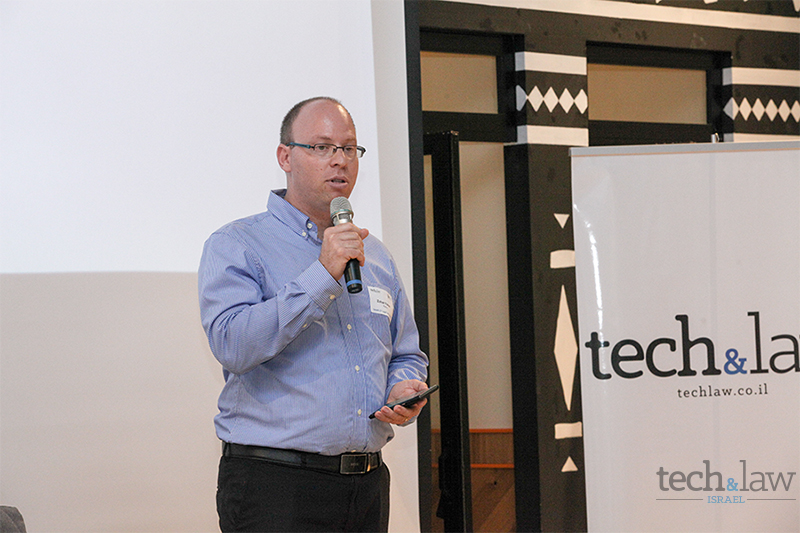
The microphone was then passed from Attorney Fischer to Ido Goldberg, head of the Legeltech department at Robus. Ido has been at the forefront of the Tech & Law Israel platform for the last 18 months, and has led the platform and community activities from its early days. At the beginning of the road, he said, it became clear that the Legeltech industry was making waves throughout the English-speaking world and in Europe, while Israel was far behind – both in terms of the number of start-ups coming from Israel and in the implementation of technological solutions of all kinds in Israeli law firms. The goal was, and still remains, at the foundation of the decision to establish Tech & Law, to create a strong Israeli Legeltech community that will know how to connect people who will lead the legal industry in Israel to the future.
The first step, he said, was to start learning. For a long time, it was all about learning and closing the gaps against the knowledge that existed at that time in the international Legaltech community. As soon as he felt that enough knowledge had been accumulated, he said, the first Hebrew content site in the field of the Legaltech (this is where you will enter the lines) was launched. For months, representatives of Tech & Law Israel held meetings with Legatech entrepreneurs and technology companies offering various solutions to the legal market, expanding their familiarity with the Israeli Legaltech scene. At this stage, Ido introduced Israel Tech & Law’s new Legaltech database, which aims to present at any given moment an updated list of the active companies in Israel (at this point say again – Do you think you should appear in the list? Contact us).
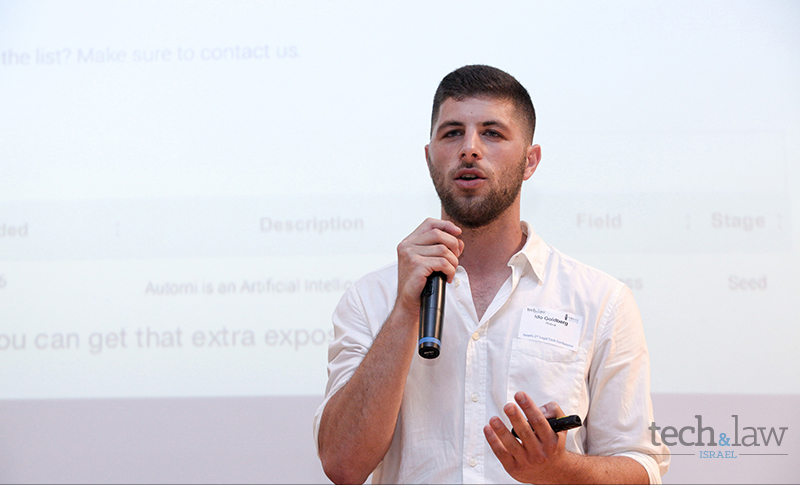
At a certain stage, Ido said, we understood that in order to advance the field in Israel we needed to create a community. Creating a “bridge” between legal and technological people that would create new initiatives, interesting opportunities and real progress in the local market. This was how the first Legaltech community was born in Israel, which met for the first time in September 2016 at the first ever Legaltech event in Israel. The dozens of participants at the meetup were the first pioneers in the community in Israel today.
In order to build a strong Israeli community to be connected to the Legaltech field worldwide, Tech & Law began to build and establish ties with Legaltech communities and organizations from all over the world. After a few months and several dozens of Skype calls, friendships and work connections with some of the most prominent figures in Legaltech were established in Europe, the US and Australia. These connections led to Tech & Law Israel’s participation in two international Legaltech conferences in recent months.
In May this year, Ido participated and lectured at an international conference on legal innovation held in Sofia, Bulgaria. In June, he participated in the first conference of the European Legal Technology Association (ELTA) and the exclusive meeting of the organization’s ambassadors across Europe. Tech & Law was the only Israeli representative at a conference attended by hundreds of representatives from over 20 European countries. The first cooperation between the organizations was not long in coming, and ELTA joined as a partner in the second Israel Legaltech conference, Ido stated. As of today, Ido concluded, Tech & Law Israel is proud to be the first information center for Legaltech in Israel. The platform already assists start-ups in the field in achieving their tasks, and even advises Israeli law firms on the right way to integrate the use of technology into the firm’s work. Ido concluded by stating there would be surprises and interesting news from Tech & Law Israel in the near future.
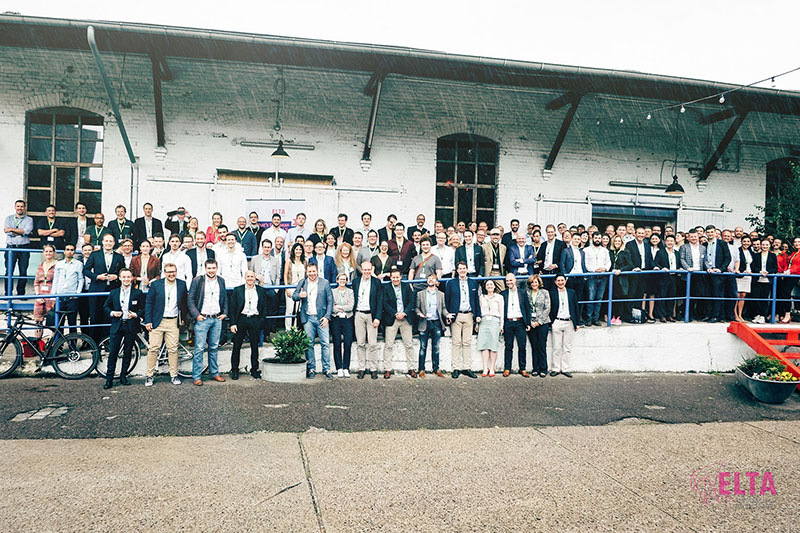
Ido passed the microphone over to Accountant Haim Sakal, CEO of Bis-Tec Technologies, one of Tech & Law Israel’s partners in the conference and in general. Bis-Tec is one of the first companies in Israel to offer advanced electronic document discovery solutions. In contrast to the traditional way that documents are discovered, Haim said, the advanced technological tools in the world, which BisTec offers in Israel, make it possible to streamline and improve the process dozens of times over.
Instead of wasting endless hours of human labor, drowning in mountain of files, E-Discovery (the electronic document discovery name) is able to perform discovery much faster and much more efficiently. For those interested, you may want to take a look at the company’s short presentation.
"Technology has changed a lot, but the way we teach law remains almost the same"
Next came to stage Mr. Mike Sims, president of BARBRI, the largest American company for the preparation for the bar exam. Mr. Sims, who had come all the way from Dallas, Texas, told how the industry in which BARBRI operates has dramatically shifted in the decades since its existence. While until a few decades ago legal knowledge was concentrated in heavy books, companies like LexisNexis now access all the information needed electronically through the internet.
However, he continued, the way law students study has hardly changed. Even though the way we access information daily has changed unrecognizably and continues to change all the time, law students still learn in a very similar way to that of students fifty years ago.
This is why, he explained, BARBRI has invested considerable efforts in recent years in making learning accessible to American students. Instead of traditional learning, the company has moved to more innovative models, combining online learning with advanced exercises that require active learning from students. In this way, Mike explained, students learn more quickly and efficiently which prepares them for their professional life after the bar exam.
Most of the work of a lawyer, he concluded, is writing. Our goal is to convey the client’s story in the most tangible and convincing way to assist him/her to win. The wave of automation that we are beginning to see today in the legal world will give lawyers more time to invest precisely in this, instead of technical tasks.

Most of the work of a lawyer, he concluded, is writing. Our goal is to convey the client’s story in the most tangible and convincing way to assist him/her to win. The wave of automation that we are beginning to see today in the legal world will give lawyers more time to invest precisely in this, instead of technical tasks.
"To make sure the right knowledge is in the hands of the right people at the right time and the right place so that they can do their job in the best possible way"
After Mike, Adv. Esther Dadashvili, who manages knowledge at Fisher Bachar Chen Well Orion & Co., took to the stage. Esther is one of the first in Israel to hold this position in a large law firm in Israel and spoke to the guests about this topic, among other things.
First, she said, there is no doubt that Israel is lagging behind compared to the rest of the world regarding the use of legal technologies. Law firms elsewhere in the world, mainly in the US and Europe, have already realized the power that technology can offer them years ago, and Legaltech has flourished in these places in recent years.
The difficulty in explaining why Israel lags behind is intensified when we take into account the fact that Israel is not only a global high-tech powerhouse, but also, as noted, the country with the most lawyers in the world per capita. This fact affirms the very competitive legal market which exists in Israel and as such it would seem reasonable that such competition would motivate Israeli firms to seek additional ways to be more competitive and efficient. However, this has not been the case.
There are many possible reasons, of course, she added, but perhaps the most important one is that we have not yet seen the rise of companies competing to offer legal services to Israeli clients at a significantly lower price than that of a lawyer. While in the United States, companies like LegalZoom have been offering cheap legal services for years and through the internet, in Israel, the field still belongs exclusively to law firms. Such companies are undoubtedly one of the most significant catalysts for the increasing demand for technology by US law firms.
The world of managing knowledge at law firms, Esther added, often touches on legal technology, since advanced technological tools can greatly improve the management of knowledge in an organization. Israeli law firms are also lagging behind with respect to knowledge management, and in fact, it hardly exists as a discipline in Israel. The main problem in how firms manage (or do not manage) their knowledge today is the overflow of knowledge. In 2010, Google’s chairman, Eric Schmidt, estimated that from the dawn of humanity until 2003, about 5 exabytes of information had been created in the world. However, he added, at present, an equal amount to this is created every two days.
The amount of information has also grow exponentially in law firms, and for lawyers who need to refine the specific information they need, this is a significant challenge. Here, Esther said, knowledge management becomes relevant. The goal is to provide the user with the relevant knowledge. Proper knowledge management processes streamline the firm’s work and improve the final product.
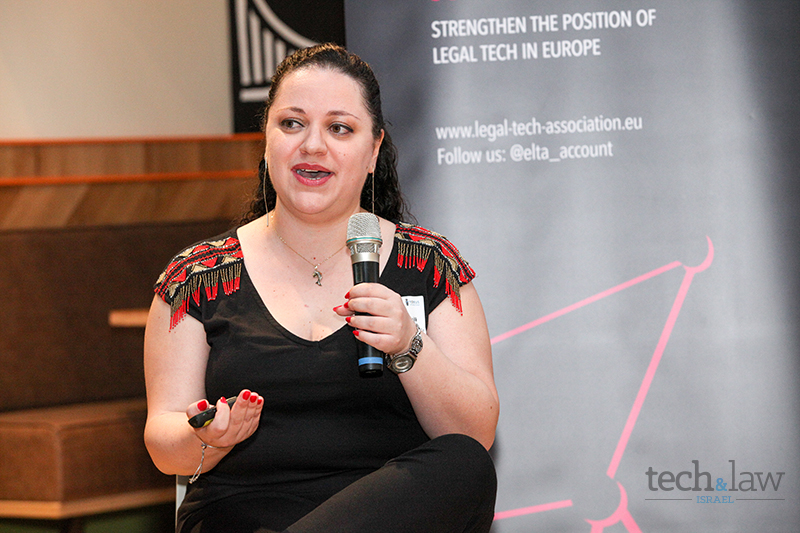
Knowledge management is closely linked, as mentioned, to the world of legal technology. Advanced technological tools make it easier today to deal with the mountains of information which exist, and do so successfully in law offices across the globe. Some of the world’s leading law schools have even started offering courses in the use of these technologies to help students better integrate them into the job market after they complete their degrees.
As the only representative of a large law firm among the speakers at the event, she added a few important points to the entrepreneurs in the audience who want to sell technology solutions to lawyers. First, she stated that it is not enough to come up with a good idea – this is just the beginning. Lawyers are analytical people, and as such, we must demonstrate exactly what the value of the proposed technology is. In addition, she said, we need to remember that the legal profession has many sub-fields. A technology that suits a lawyer in litigation might not necessarily assist a real estate lawyer, for example. It is therefore necessary to understand exactly who the target audience is and how to target them specifically. Finally, she said, it’s important to focus on return on investment (ROI). Technological solutions tend to sometimes be expensive, and therefore it is important to explain how the technology creates a return on investment and how long this will take.
Finally, she summarized to the lawyers in the audience that the fact that they will not start buying and using dozens of technological solutions tomorrow morning does not mean that they do not need to start preparing today. Knowledge management today will make it easier to implement advanced technological solutions in the future, which will be more available and cheaper.
Legal Technology Vs. Legal Innovation
Last on the microphone was Mr. Zach Abramowitz, one of the most prominent Legaltech writers in the world in recent years, and an entrepreneur himself. Zach said that after endless correspondence with one of his best friends, he had an idea to create a system that would be embedded in leading content sites and would allow his readers to be a “fly on the wall” in interesting conversations between familiar personalities. That is how ReplyAll was born. In contrast to the standard structure of frequently published interviews on different content sites, ReplyAll allows users to follow a conversation between two or more personalities while the conversation occurs.
When the system went live and started working on the “Above The Law,” website, he said, he began hosting conversations in diverse areas. At one point, as a person interested in technology and as a lawyer by trade, he began to interview personalities from the Legaltech world. Slowly, he delved into the subject and began interviewing CEOs, investors and prominent figures in the field. In recent years, he has established himself as one of the world’s most prominent Legaltech writers.

The question that Zach asked to raise was what is the difference between legal technology and legal innovation? The difference between technology and innovation is explained by an example from the world of education. While technology is, for example, income for the use of iPads and tablets in classrooms, innovation can be a policy in which schoolchildren clean the bathrooms themselves. Why is this innovation? For the reason that this is a new course of action that can improve the functioning of the school. Schools that have put this to the test have found that it has positive outcomes on the students, and they have achieved this through means available to them from beforehand.
This is exactly the difference, he explained, between legal technology and legal innovation. The technology available to us today is extraordinarily advanced, but what we lack, he argued, is innovation. As an example of legal innovation, Zach mentioned, among other things, is Rimon, a successful US law firm that operates almost entirely virtually. Moreover, the firm has completely changed the accepted organizational structure of law firms, the methods of billing and the method of how to work with clients. Another example is eScribers, a legal transcription company that provides quality transcription services at a fraction of its previous price. The company is able to offer very low prices because it replaced expensive transcribers who operated within the legal system with simple recording devices, which are used to produce the final transcription. Other examples are axiom, an innovative law firm which provides technology-driven legal services to commercial companies, and Ruby Receptionists, an American company that has replaced secretaries in many companies with virtual services which do the same job at a lower price and without human error.
In conclusion, he said, legal technology is a great thing and there is no doubt that it will continue to grow. However, we all already have very advanced technologies right at our fingertips. What we need, and what can help you tomorrow morning, is thinking about innovation. Try to see how you can change your traditional ways of working according to the changing needs of your clients. Sometimes a bit of innovation will help far more than a lot of technology.
For the full photo album of the event visit our Facebook page here.
THANKS!
Finally, we wanted to say thank you. Thank you to all our partners for allowing this amazing event to take place, and a special thank you to all of you who came and made this event the biggest legal tech event ever in the Startup Nation. Keep following us and assisting us and we will meet at the next conference!
